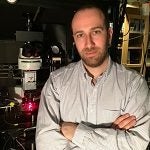Keynote Lecture
 Morgan Sheng
Morgan Sheng
Co-Director of the Stanley Center for Psychiatric Research at the Broad Institute;
Professor of Neuroscience, Department of Brain and Cognitive Sciences, MIT
Bipolar Disorder and Schizophrenia: from human genetics towards neurobiological mechanisms
 Susan Dymecki
Susan Dymecki
Professor of Genetics,
Harvard Medical School
Affective disorders, seasonal photoperiod, and adaptive neurotransmitter switching
 Maria Lehtinen
Maria Lehtinen
Robertson Investigator, New York Stem Cell Foundation;
Hannah C. Kinney MD, Chair in Pediatric Pathology Research, Boston Children’s Hospital;
Associate Professor, Harvard Medical School
Circadian regulation of the cerebrospinal fluid and implications for brain health
 Daniel Hochbaum
Daniel Hochbaum
Postdoctoral Fellow, Lab of Bernardo Sabatini,
Harvard Medical School
Conserved mechanisms coordinating exploratory behavior and whole-body metabolism
 Leah Somerville
Leah Somerville
Professor of Psychology,
Harvard University
Leveraging large-scale studies of neurodevelopment to inform the mechanisms of bipolar disorder and other forms of psychopathology
Header image courtesy of Evelyn Aviles, Lab of Lisa Goodrich, Harvard Medical School
Section of the mouse retina stained for cone photoreceptors in cyan, and the synaptic protein GRM6 in magenta. In yellow, neuronal endings are marked by the protein Fat3.

